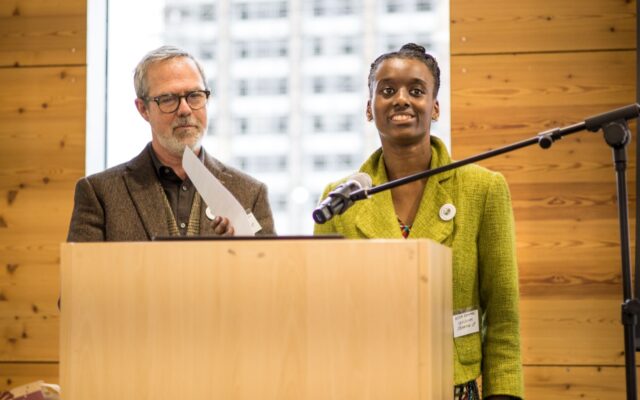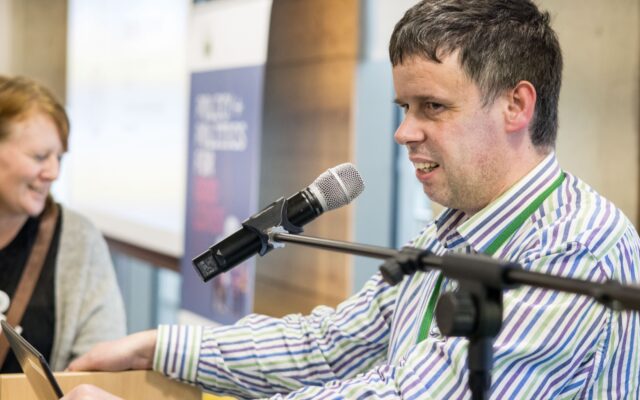A lot of debate was sparked by our feature on the Down Syndrome Bill in the last issue. Some questioned whether the magazine should be neutral over this or back one side or the other.
For what it’s worth, my opinion is that there are certain issues on which Community Living should take a stand. Incarcerating people in abusive assessment and treatment centres for example, is wrong, and we should campaign relentlessly against this.
Something like the Down Syndrome Bill, on the other hand, has divided opinion in the learning-disabled community – sometimes acrimoniously – and its consequences are not knowable.
On a matter such as that, I think the job of the magazine is to lay out the information available, give space to different
Bright lights, big head
Years ago, I got into a gossipy conversation with the chair of the Regent Street and Bond Street Traders’ Association, who was organising a Christmas party for children with learning disabilities in Westminster.
That year, she had invited footballer Paul Gascoigne to turn on the Christmas lights. She also invited people from the voluntary sector to attend as guests, one of whom was the secretary general of Mencap, Vice Admiral Sir Geoffrey Dalton KCB.
He was seen as an unusual choice to lead Britain’s largest learning disability charity. He had just retired from the navy, and seemed to have no experience of running charities or knowledge of learning disabilities.
His secretary wrote back that while he was very flattered to be asked to turn on the Regent Street lights, he was too busy to come. Clearly, he was a bit more famous in his own mind than in the minds of others.
Celebrity attitude
Two genuine celebrities who showed a bit more modesty were Rod Stewart and Penny Lancaster.
Not so long ago, I saw a nativity play at a special school where a child with profound learning disabilities, for whom we were respite foster carers, was playing a part.
Stewart and Lancaster lived nearby and accepted an invitation to attend. They were both terrific, not hogging the limelight, interacting really well with all the children and their families, remaining for the whole afternoon and showing no signs of ego whatsoever.
It is unmistakeable when people are authentically interested in those around them, not just performing a duty.
Welcome to our new editor
I hope readers will forgive the stream of gossip and name-dropping in this, my last editor’s diary for Community Living.
I’m moving on after six years, and it has been a privilege to have had the job of writing on and asking people to write about learning disability issues.
I have tried to have a whole spectrum of voices, including articles by people with learning disabilities themselves.
We have to find imaginative and creative approaches to many issues and problems, and no one set of answers will solve them.
It is not all gloom, however – amazing things have been going on in the performing and creative arts, for example, and it’s been a pleasure to feature this. There is some terrific practice in everyday support, often against all the odds.
I am thrilled to be handing over to Saba Salman. She is a wonderful writer whose cutting-edge, campaigning journalism has not only won her awards but also brought serious issues that would otherwise have been overlooked into the public domain.
I look forward with great excitement to reading Community Living under her editorship.





